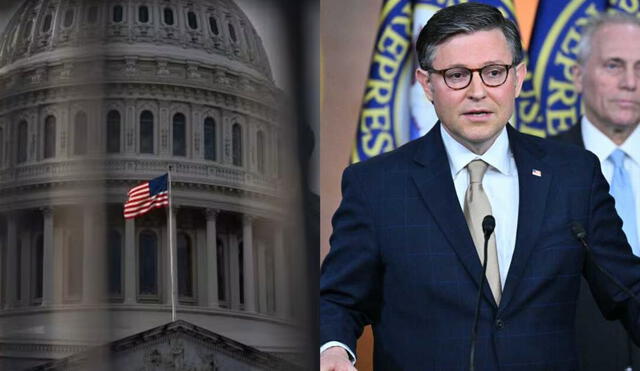GOP advances government funding bill despite Democratic resistance as deadline approaches
As the deadline looms, the political impasse over the funding bill highlights deep partisan divisions. The outcome will not only determine the continuity of federal operations but also set a precedent for future negotiations between the two parties.

House Republicans have advanced legislation to avert a partial government shutdown, aiming to fund federal agencies through September. This initiative underscores the party's commitment to maintaining government operations, despite facing significant resistance from Democrats.
Speaker Mike Johnson (R-La.), spearheaded the bill's progression without Democratic endorsement, effectively challenging the opposition to risk a potential shutdown set to commence Friday if unresolved. The procedural vote showcased robust Republican unity, bolstered by Vice President J.D. Vance's Capitol Hill visit to rally support. President Donald Trump echoed this sentiment, urging Republicans to “remain united — no dissent — fight for another day when the timing is right.”
GOP advances government funding bill
The proposed legislation outlines:
- Budget adjustments: A $13 billion reduction in non-defense spending and a $6 billion increase in defense allocations, maintaining an overall discretionary spending level near $1.7 trillion.
- Entitlement programs: Exclusion of major programs like Social Security and Medicare, which operate on automatic funding mechanisms.
- Administrative discretion: Enhanced flexibility for the Trump administration in allocating funds, raising concerns about potential shifts in spending priorities.
Democratic concerns and the role of DOGE
Democrats express alarm over the discretionary power granted to the Trump administration, particularly regarding the Department of Government Efficiency (DOGE), led by Elon Musk. They fear the bill could enable the administration to divert funds from critical initiatives, such as combating the fentanyl crisis, to more controversial agendas like mass deportation. Rep. Rosa DeLauro (D-Conn.), the top Democrat on the House Appropriations Committee, criticized the bill as a “blank check for Elon Musk and President Trump.”
The bill now advances to the Senate, where it requires support from at least eight Democrats to reach President Trump's desk. Senate Democratic leaders have adopted a cautious stance, awaiting the bill's passage in the House before formulating their response. Sen. Cory Booker (D-N.J.) expressed astonishment at the Republicans' approach, accusing them of presenting a “take-it-or-leave-it” proposition.
Why do Democrats oppose the funding bill?
The truth is that senate Democrats are not unified on the bill. Senator John Fetterman of Pennsylvania suggested he might support it, emphasizing that a shutdown would lead to “chaos” and affirming, “I will never vote for chaos.” Similarly, Senator Ron Wyden of Oregon expressed hesitation about opposing the measure, stating, “Shutdowns are a bad idea. I’m not a shutdown guy.”
On the other hand, some Democrats, such as Michigan’s Elissa Slotkin, remain opposed. They insist on guarantees that the funds will be allocated as Congress intends before considering their support.
The proposed funding levels pose significant challenges for Washington, D.C., compelling the city to slash $1.1 billion in spending over the next six months. Mayor Muriel Bowser (D) warned that such cuts could severely affect essential services, including education and public safety, undermining efforts to enhance the capital's stature.












